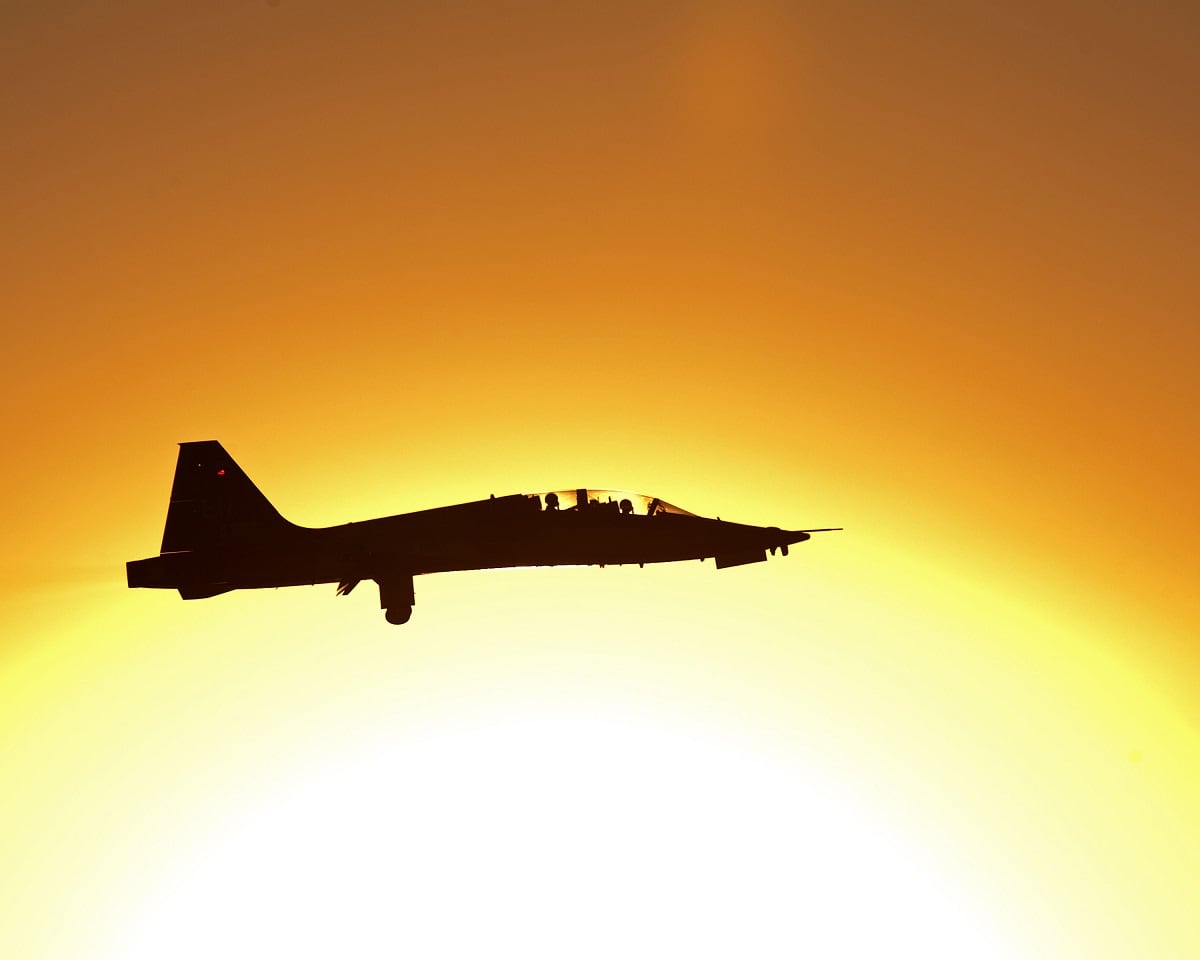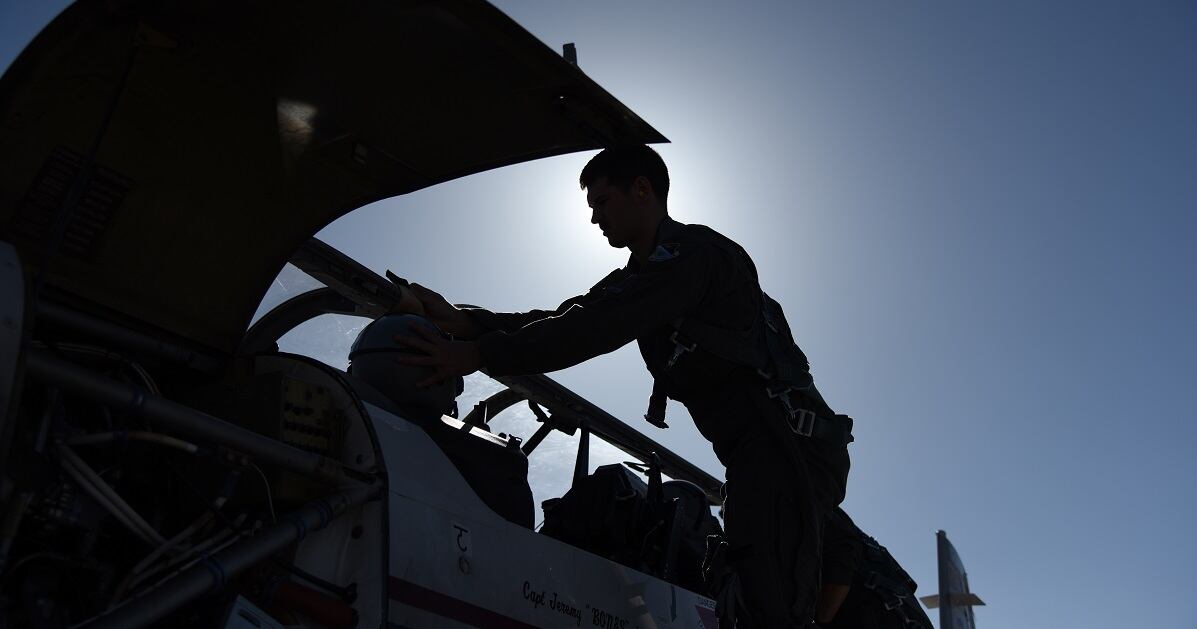Air Education and Training Command on Friday released a heavily redacted version of the report on the investigation into officer misconduct at Laughlin Air Force Base in Texas, which led to the removal of three leaders, including a wing commander.
The report raises concerns about lapses in good order and discipline at the 47th Flying Training Wing at Laughlin, criticizes its absentee leadership for failing to correct unsafe situations, and expresses concern about the alcohol culture there.
But a vast swath of the report was blacked out. Nearly 70 pages outlining the misconduct findings — almost half of the entire 158-page report — were completely redacted in the version posted online.
AETC spokeswoman Jennifer Gonzalez said the report was redacted to protect personal privacy and to protect ongoing law enforcement proceedings. Air Force Times has requested a less-redacted version of the report.
Reports typically are not so heavily redacted to protect personal privacy. Usually, names or other identifying information are redacted from such reports, while leaving other information that describes what investigators found.
Col. Charles Velino, the wing commander, Col. Robert Pekarek, the 47th Operations Group commander, and Lt. Col. Thomas Allen, the 87th Flying Training Squadron commander, were relieved of command Oct. 31. A fourth, unidentified airman was also relieved as part of the investigation.
AETC Commander Lt. Gen. Steven Kwast relieved the trio after deciding the command team at the 47th did not take appropriate actions to stop and correct incidents of officer misconduct — including alcohol consumption and disrespectful treatment of some students.
AETC confirmed shortly after the firings that the misconduct included an incident in which a female student pilot was given a vulgar call sign, although she herself voiced no objection, and a separate, unrelated incident in which a threat was made. The San Antonio Express-News reported that the female pilot was given an inappropriate call sign as part of a drinking ritual.
The report said an absence of wing leadership contributed to the officer misconduct. It singles out Velino, who took command of the 47th, for being on TDY for 135 days during his first six months, or about 73 percent of the time. That included 128 days at Pilot Instructor Training at Joint Base San Antonio-Randolph, the report said.
“The lack of wing command presence at home station did not allow the wing commander to clearly set expectations, learn about the challenges and opportunities in the 47th by establishing relationships with the leadership team, or develop an understanding of the culture at the 47th FTW,” the report said.
RELATED

The 47th also misinterpreted the Air Force’s new policy to revitalize squadrons by pushing down decision-making authority.
“On multiple occasions leadership in the 47th FTW inappropriately abdicated authority,” the report said. “The abdication was both a lack of awareness when leaders should act and a misunderstanding of authorities and delegation of authorities.”
The report also criticizes unsafe supervision by leaders at the 47th, which contributed to the alleged officer misconduct. Leaders didn’t understand when they needed to get involved and correct an unsafe situation, the report said.

There were at least two incidents during which squadron, group and wing leaders didn’t step in and stop unprofessional and unsafe alcohol-related incidents from escalating, according to the report..
One of those incidents was the previously-reported naming ceremony. Another was a “piano burning ceremony,” which was not further elaborated upon in the released documents.
“The lack of leadership intervention created the false perception that the Air Force condoned values that did not promote dignity and respect,” the report said.
There is an “underlying feeling that over-consumption of alcohol was part of our Air Force heritage," and only required mitigating, not correcting, the report said. It cited the use of the designated driver program to mitigate excessive drinking.
Investigators also visited other pilot training bases, and found that when family members attended students' naming ceremonies, graduations and other morale events, there was less alcohol consumed and events were safer and more professional.
“The consumption of alcohol in association with training milestones appeared to glamorize the overindulgence of alcohol and this was most notable at Laughlin AFB,” the report states.
Squadron and flight commanders at the 19th Air Force, of which the 47th is a part, reported a general culture of alcohol-drinking, but said they believed it was “professional, moderate and responsible.”
Some officers reported during focus groups that they felt a drink at the end of the week in flight or heritage rooms was a nice way to unwind and build camaraderie.
But enlisted airmen at Laughlin felt differently. In focus groups, enlisted airmen said they didn’t think the drinking culture was professional, moderate or responsible, and most said officers drank more than enlisted personnel. They also characterized student pilots as “frat boys," and said there was a perception that officers got away with drinking-related misconduct.
Two instructors also said they felt pressured to drink, and three instructors believed Air Force leadership encouraged the alcohol culture.
The report also identified “an environment of hostility and toxic leadership” among a few simulator instructors at Laughlin, which had lasted for years, was occasionally severe, and didn’t do anything to improve their student’s performance.
Leadership across the 47th, down to the flight level, felt acute pressure to produce aviators, the report said. The Air Force is facing an ongoing pilot shortfall, and is trying to increase pilot production to help correct it.
But the emphasis on pilot production left little time for professional development and mentorship, the report said.
Stephen Losey is the air warfare reporter for Defense News. He previously covered leadership and personnel issues at Air Force Times, and the Pentagon, special operations and air warfare at Military.com. He has traveled to the Middle East to cover U.S. Air Force operations.





